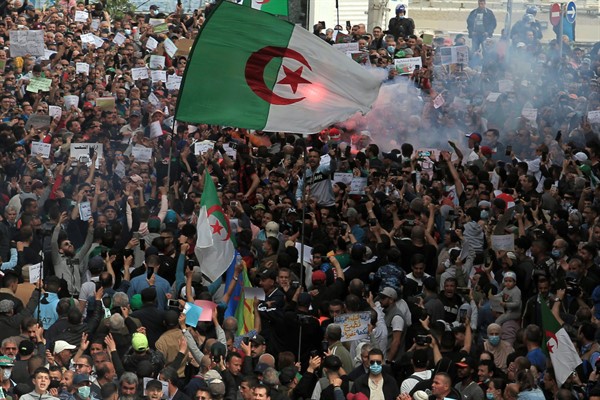On May 21, Algerian authorities arrested some 800 protesters who had gathered to decry continued economic hardship and political stagnation across the country. It was one of the regime’s most visible shows of force yet against the yearslong popular uprising—known as Hirak, Arabic for “movement”—which resumed weekly mass demonstrations in February after suspending activities for almost a year due to the coronavirus pandemic.
Hirak activists first began organizing in 2019 to demand the resignation of then-President Abdelaziz Bouteflika, but their demands quickly evolved to include calls for an overhaul of the political system. More recently, the protests have also been fueled by the twin shocks of COVID-19 and depressed oil prices that have exacerbated Algeria’s economic situation, resulting in soaring rates of unemployment, as well as a depreciated currency, inflation and reduced purchasing power. Various sectors of Algerian society have organized strikes in recent months, including health professionals, youth groups and postal workers.
The Algerian regime—represented by Bouteflika’s successor, President Abelmadjid Tebboune, although real power lies with the military—is scrambling to contain the unrest while grappling with diminished revenues. It has made some token efforts to placate the protesters, like arranging early parliamentary elections, which were initially scheduled for 2022 but were brought forward to this Saturday. However, the elections should not be mistaken for a genuine concession by the regime, as they will not bring about substantial change.

